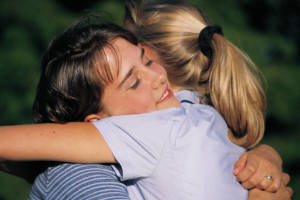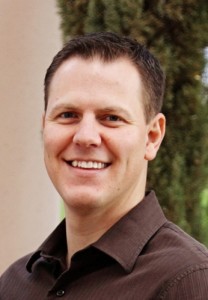 Kids make lots of mistakes. The fact is we as parents make plenty of mistakes as well. As a therapist who works with children and families, I get to spend lots of time working with parents on their reactions to the mistakes their children make. In doing so, I have found that some parents react with an abrupt intensity when their children make mistakes. Unsurprisingly, many of these parents were reacted to in similar ways when they were kids and they made mistakes. Some parents who were reacted to with a great deal of anger and intensity developed a freeze response that followed them into adulthood and comes out when conflict occurs.
Kids make lots of mistakes. The fact is we as parents make plenty of mistakes as well. As a therapist who works with children and families, I get to spend lots of time working with parents on their reactions to the mistakes their children make. In doing so, I have found that some parents react with an abrupt intensity when their children make mistakes. Unsurprisingly, many of these parents were reacted to in similar ways when they were kids and they made mistakes. Some parents who were reacted to with a great deal of anger and intensity developed a freeze response that followed them into adulthood and comes out when conflict occurs.
Because parenting is a blend of happiness and conflict, parents need the skills to react to their children in positive ways when things aren’t going well, just as much as they need to respond to their children in positive ways when things are going well. It is in the moments, when things are not going well, that our children need us the most. However, because of the harshness that many parents experienced as kids, and the cultural belief that parents should get angry, criticize, and shun their children when they misbehave, our little kids are often sent away to try to figure out big emotions on their own. Unfortunately, because of where young children are at developmentally, instead of recognizing that they did something wrong, they often conclude that there is something wrong with them. Internalizing our mistakes as a description of who we are is often referred to as shame.
When parents carry around a significant amount of shame, it can inhibit their ability to be emotionally available for their kids. It can also lead parents to close off emotionally and react with disgust and impatience and push their children away – thus passing on shame from one generation to another. Fortunately, there is a way to break this cycle.
Sometimes when I am working with a parent in therapy who grew up in an environment that was harsh and punitive, the parent will describe an experience that she had when she was young and her own parent was especially abrasive toward her. After listening to the experience I will ask the parent if she would remember the event with as much disturbance if her own parent had come back to her, after they had overreacted, and made things better. Repeatedly the parent will say “no.” Most often, it isn’t the offense itself that causes long lasting damage, but the lack of repair of that offense that leads children to develop negative beliefs about themselves that can last the rest of their lives.
So how can we as parents break cycles of generational shame? The answer is repair repair repair. When we recognize that we have reacted to our children with harshness and severity when they have made a mistake, we should repair it. We should go to them and in a genuine and sincere way, we should recognize our mistake in the way we reacted and state how we should have reacted instead. Then with gentleness we can show them love and bring our kids in close to us through a hug, or rubbing their back, or some other physical gesture that communicates that their mistake doesn’t ruin the relationship.
One example may go something like this:
Parent: (Coming close and sitting next to the child) Son, I didn’t react very kindly to you when you were fighting with your sister.
Child: Well she hit me first! And then you yelled at me!
Parent: (in an empathetic and calm tone) I did yell, and that wasn’t okay. And I wouldn’t have liked it if I had been hit either. So I get that you were upset. You know what? I want to work on not yelling any more. I don’t like it when I yell (bringing the child in close and holding the child for a moment). One thing that I would like you to work on is being more patient with your sister and getting along better with her. How does that sound?
Child: Well she always hits.
Parent: I know. And I am working on that with her, but it would be helpful to me if you would be a little more patient and kind toward her. What do you think?
Child: Okay.
Parent: I think your sister got hurt when you hit her, so we got to go make that better. Are you ready?
Child: Yea.
Repair with your kids may not play out exactly like this; especially not at the beginning. However, with time and many repetitions, repair can look similar to the example above. And as we focus on repair with our kids we can replace feelings of shame with feelings of love and acceptance. We can break cycles of generational shame and help our kids learn that mistakes are a part of life and we can make most mistakes better.
 Shiloh Lundahl, LCSW, is a child and family therapist in Gilbert and Mesa, Arizona. He is the founder of Parent Arizona and Counseling Services and is part of the Arizona Family Therapy Group.
Shiloh Lundahl, LCSW, is a child and family therapist in Gilbert and Mesa, Arizona. He is the founder of Parent Arizona and Counseling Services and is part of the Arizona Family Therapy Group.
He provides parenting classes using the Love and Logic curriculum, classes for parents of children with ADHD, step-parenting classes, and advanced trainings for foster and adoptive parents. He also provides in-home therapy in Gilbert, Mesa, Queen Creek, San Tan Valley, Chandler, and Tempe, Arizona.
